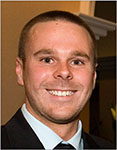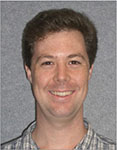Improved LNG production through the advancement of CH4 + N2 separations using pressure swing adsorption
Paul Steven Hofman A and Eric May AThe University of Western Australia
The APPEA Journal 52(1) 55-64 https://doi.org/10.1071/AJ11005
Published: 2012
Abstract
The majority of global energy analysts predict the demand for LNG is set to grow substantially during the next 3-4 decades, particularly in the Asia-Pacific region. Impurities in the natural gas feedstock used to produce LNG pose a significant challenge to its efficient production, especially if high-quality natural gas fields are depleted and sub-quality gas needs to be used. One of the most challenging contaminants to remove from unrefined natural gas is N2 as its inert properties make it difficult to separate from CH4-dominant gas streams. Although a small number of N2 + CH4 separation technologies exist for this purpose, economies of scale dictate that cryogenic distillation, although costly, is the only technique economically viable for flows of more than 25 MMSCFD at this point.
This paper examines the present state of commercial N2 + CH4 separation technologies with respect to LNG production and the present opportunities for improvement. The potential that pressure swing adsorption (PSA) has compared with competing technologies through using the low-temperature conditions available in an LNG gas processing facility is illustrated. Finally, the challenges associated with developing the proposed low-temperature PSA process and the status of the research underway to address them is discussed.

Paul Steven Hofman is a PhD student at UWA, and is in the fourth year of his project titled: Dynamic mixture measurements of adsorbents for evaluating N2 + CH4 separations by PSA for LNG production. Paul moved from the city of Wollongong to undertake a PhD in the field of gas process engineering, after completing his advanced Bachelor’s degree in nanotechnology with first class Honours at the University of Wollongong. Before studying at university, he completed an apprenticeship at Wollongong TAFE as an electrical tradesperson. Paul.Hofman@uwa.edu.au |

Eric May is the Chevron Chair in Gas Process Engineering at UWA. Eric completed his Bachelor of Science (Hons) and PhD at UWA and was awarded the 2004 Robert Street Prize by UWA for the thesis that made the most significant contribution to its field. Following his PhD, Eric was a research fellow at the National Institute of Standards and Technology in Maryland, funded in part by an American Australian Association Education Fellowship. Eric has an interest and conducts research in hydrocarbon process engineering, adsorption, CO2 sequestration, flow assurance, measurement and prediction of fluid properties, and fundamental metrology. Eric.May@uwa.edu.au |


